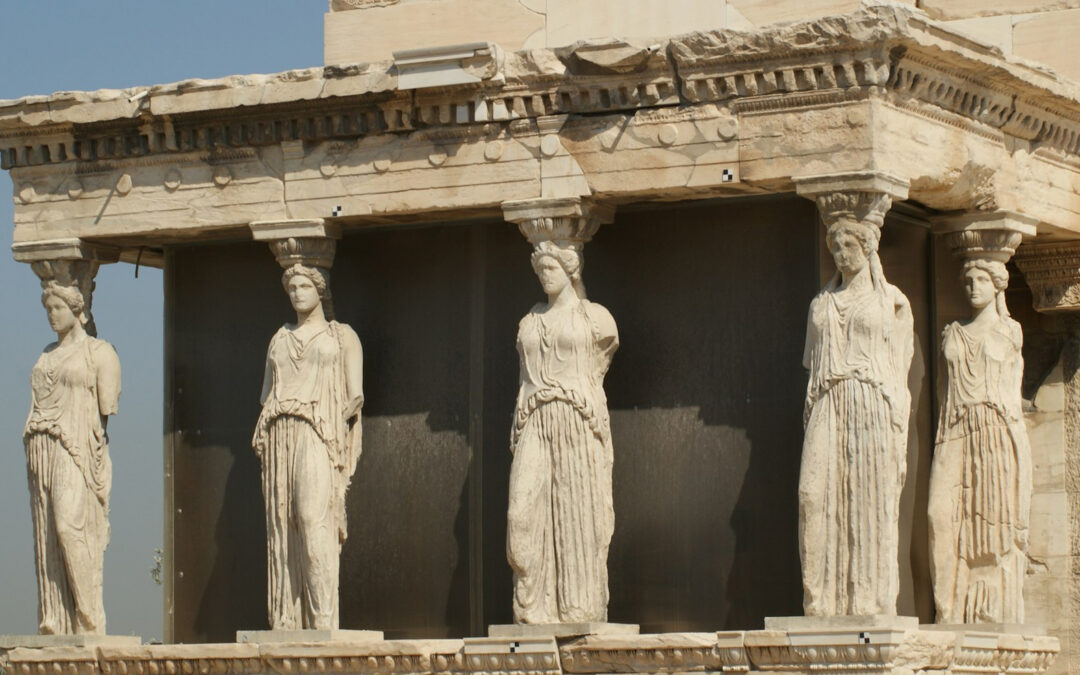Fragment of a draft for a manifesto on Buddhist-informed democracy
Democracy depends on the rule of law to define what is fair and what is an arbitrary use of power.
However, the rule of law is not just about the laws or the institutions. The rule of law lives only to the extent that people are willing and able to enforce the law, and people are willing and able to claim their rights.
When people collapse under pressure and fail to assert their rights or enforce the law, the whole edifice collapses.
At such times, we see that the rule of law is not an abstraction. It is a very real human spectacle of a few standing up against the pressure, while many more people are breaking under it.
We often describe institutions as the pillars of society. However, in times of hardship, we see that the pillars are people —the individuals who withstand the pressure.
I want to develop the previous paragraph into a visual metaphor. Think about institutions as a Greek temple with powerful columns. Well, it turns out that the columns are people. They can carry the building only to the extent that everybody shares the weight. The more people collapse under pressure, the harder it is for the others.
The columns of the temple are people, and people are vulnerable. My understanding of dukkha is that it refers to the vulnerability inherent in being human. But vulnerability is not a tragic flaw, because we can counterbalance it with our ability to be compassionate, respectful, and mutually supportive.
What makes it possible to withstand the pressure is not to try to become a superhero. We are not running away from being vulnerable. We find strength in coming together with respect and support for our vulnerabilities. In doing so, we reaffirm our humanity in the midst of dehumanizing cruelty
.
